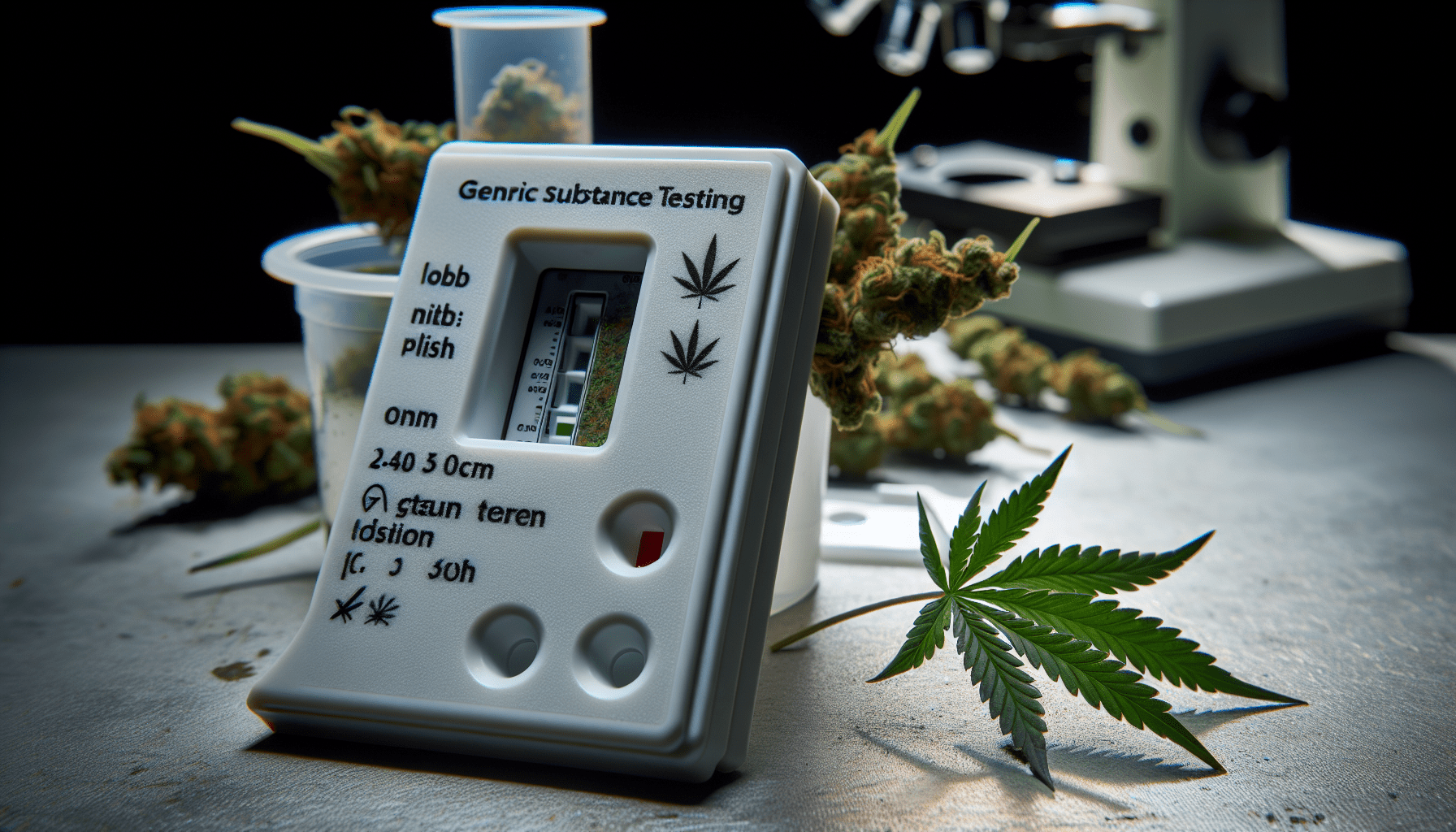If you’re someone who enjoys using cannabis recreationally, it’s important to be aware of how it can potentially impact your job. Many employers have strict drug testing policies in place, which can lead to consequences if cannabis shows up in your system. It’s important to understand your company’s stance on cannabis use and to make informed decisions about your consumption. This article will delve into the relationship between cannabis and employment drug testing policies, offering insights on how to navigate this complex issue. Hey there! Have you ever wondered how cannabis use can affect your employment opportunities due to drug testing policies? Let’s dive into the world of cannabis and employment drug testing policies to understand how it may impact your job prospects.

Understanding Cannabis and Drug Testing
Cannabis, also known as marijuana, is a popular recreational drug that is becoming increasingly legalized for medicinal and recreational use across the United States. However, despite its legal status in many states, cannabis remains illegal under federal law. This creates a complex legal landscape when it comes to drug testing policies in the workplace.
What is Cannabis?
Cannabis is a plant that contains psychoactive compounds, most notably THC (tetrahydrocannabinol) and CBD (cannabidiol). THC is the compound responsible for the “high” associated with marijuana use, while CBD is non-psychoactive and is often used for its potential therapeutic benefits.
Types of Drug Tests
Employers can test for cannabis use through various methods, including urine tests, blood tests, saliva tests, and hair follicle tests. Each type of drug test has a different detection window, with urine tests being the most common due to their cost-effectiveness and ease of administration.
Impact of Cannabis Use on Employment
The use of cannabis can have implications for your job prospects, particularly if your employer has strict drug testing policies in place. Even if cannabis is legal in your state, your employer may still have the right to prohibit its use among employees.
Zero-Tolerance Policies
Many employers have zero-tolerance policies when it comes to drug use, including cannabis. This means that any positive drug test result for cannabis can result in disciplinary action, including termination.
Safety-Sensitive Positions
In industries where safety is paramount, such as transportation, healthcare, and manufacturing, employers may have stricter drug testing policies to ensure the safety of their employees and the general public. Cannabis use in safety-sensitive positions can pose a risk to others and is often strictly prohibited.
Legal Protections
While cannabis is legal in many states, employees do not have the same legal protections as they do for other legal substances, such as alcohol. Employers can still enforce drug-free workplace policies and take action against employees who test positive for cannabis use.
Medical Marijuana
Some states have laws in place that protect employees who use medical marijuana for qualifying medical conditions. However, these protections vary from state to state, and employees must comply with state-specific regulations to qualify for legal protections.
Pre-Employment Drug Testing
Pre-employment drug testing is a common practice for many employers to ensure that prospective employees do not have a history of drug use. Cannabis use can be detected in drug tests weeks after the last use, making it important for job seekers to understand their rights and responsibilities when it comes to drug testing.
Know Your Rights
Before undergoing a pre-employment drug test, it is essential to know your rights regarding drug testing policies in your state. Some states have limitations on pre-employment drug testing, while others allow employers to test for a wide range of substances, including cannabis.
Disclosure
If you are a medical marijuana patient or have recently used cannabis for recreational purposes, it is essential to disclose this information to your potential employer before the drug test. Failure to disclose cannabis use can result in disciplinary action or a revoked job offer.
Alternative Testing
In some cases, employers may offer alternative testing methods, such as hair follicle tests or oral swabs, to detect recent cannabis use more accurately. If you are concerned about a positive drug test result for cannabis, discuss alternative testing options with your potential employer.
Random Drug Testing Policies
Some employers have random drug testing policies in place to deter drug use among employees and ensure a drug-free workplace. Random drug testing can be stressful for employees who use cannabis recreationally or medically and may not know when they will be tested.
Frequency
The frequency of random drug testing varies depending on the employer and industry. Some employers conduct random drug tests monthly, quarterly, or on an as-needed basis. Employees should familiarize themselves with their employer’s drug testing policies to understand when they may be subject to random testing.
Impact on Employees
Random drug testing can create a sense of unease and anxiety among employees, especially those who use cannabis for medicinal purposes or in states where recreational use is legal. Employees may feel unfairly targeted or stigmatized for their cannabis use.
Legal Protections
Employees who are subject to random drug testing should be aware of their legal protections regarding drug testing policies. Some states have limitations on random drug testing, while others allow employers to conduct random tests without advance notice.

Workplace Drug Policies
Employers have the right to establish drug-free workplace policies to maintain a safe and productive work environment. These policies may include prohibitions on the use of cannabis and other drugs, consequences for violating the policy, and procedures for drug testing.
Employee Handbooks
Many employers outline their drug-free workplace policies in employee handbooks or company policies. Employees should review these policies carefully to understand the consequences of violating the policy and the procedures for drug testing.
Consequences
Employees who violate drug-free workplace policies may face disciplinary action, including termination. Employers have the right to enforce these policies to maintain a safe and productive work environment for all employees.
Confidentiality
Employers are required to maintain the confidentiality of drug test results and medical information related to drug testing. Employees should feel comfortable knowing that their test results will not be disclosed to unauthorized individuals.
Drug Testing Procedures
Drug testing procedures vary depending on the employer and the type of test being conducted. Employers must follow proper procedures to ensure accurate and reliable drug test results and to protect the rights of their employees.
Collection Sites
Drug tests are typically conducted at designated collection sites, where employees provide a sample for testing. Collection sites must follow strict protocols to ensure the integrity of the sample and prevent contamination.
Chain of Custody
To maintain the integrity of drug test results, samples are processed through a chain of custody procedure to track the sample from collection to testing. This ensures that the sample is not tampered with or compromised during the testing process.
Laboratory Testing
Most drug tests are sent to a certified laboratory for analysis to detect the presence of drugs in the sample accurately. Laboratories must adhere to strict quality control protocols to ensure the accuracy and reliability of drug test results.

Employee Rights and Protections
Employees have rights and protections under federal and state laws regarding drug testing in the workplace. It is essential for employees to understand their rights and responsibilities when it comes to drug testing to protect themselves from unfair practices.
Right to Privacy
Employees have a right to privacy when it comes to drug testing in the workplace. Employers must follow proper procedures to protect the confidentiality of drug test results and medical information related to drug testing.
Americans with Disabilities Act (ADA)
Under the Americans with Disabilities Act (ADA), employers are prohibited from discriminating against employees with disabilities, including those who use medical marijuana for qualifying medical conditions. Employees should be aware of their rights under the ADA regarding drug testing policies.
State-Specific Protections
Some states have laws in place that protect employees from discrimination based on drug test results, including positive results for cannabis use. Employees should familiarize themselves with state-specific regulations to understand their legal protections.
Conclusion
In conclusion, cannabis use can have implications for your employment opportunities due to drug testing policies in the workplace. It is essential to understand your rights and responsibilities regarding drug testing to protect yourself from unfair practices and disciplinary action. By familiarizing yourself with drug testing policies and procedures, you can navigate the complexities of cannabis and employment drug testing policies with confidence. Stay informed, stay safe, and best of luck in your job search!

